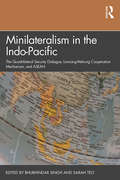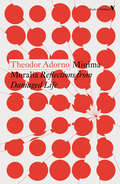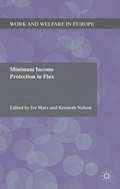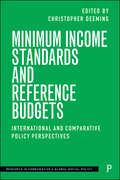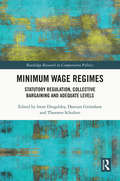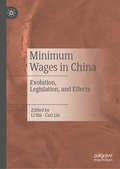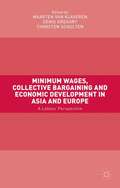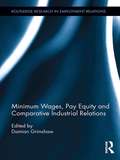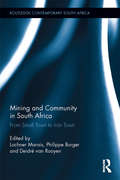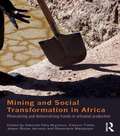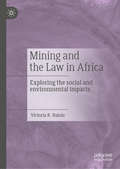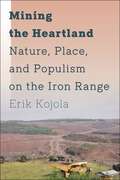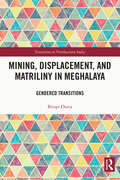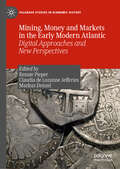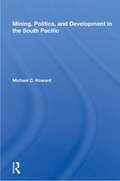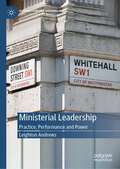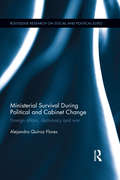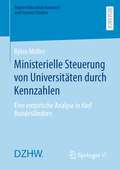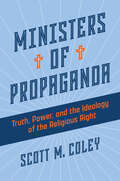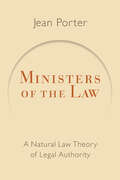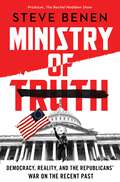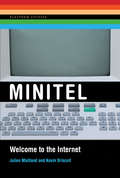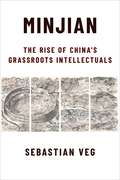- Table View
- List View
Minilateralism in the Indo-Pacific: The Quadrilateral Security Dialogue, Lancang-Mekong Cooperation Mechanism, and ASEAN
by Bhubhindar SinghWhile US-centred bilateralism and ASEAN-led multilateralism have largely dominated the post-Cold War regional security architecture in the Indo-Pacific, increasing doubts about their effectiveness have resulted in countries turning to alternative forms of cooperation, such as minilateral arrangements. Compared to multilateral groupings, minilateral platforms are smaller in size, as well as more exclusive, flexible and functional. Both China and the US have contributed to minilateral initiatives in the Indo-Pacific. In the case of the former, there is the Lancang-Mekong Cooperation mechanism—involving China, Cambodia, Laos, Myanmar, Thailand and Vietnam—established in 2015. In the case of the latter, there has been a revival of the Quadrilateral Security Dialogue in 2017—involving the US, Australia, Japan and India. This book examines the rise of these arrangements, their challenges and opportunities, as well as their impact on the extant regional security architecture, including on the ASEAN-led multilateral order. A valuable guide for students and policy-makers looking to understand the nature and development of minilateralism in the Indo-Pacific region.
Minima Moralia: Reflections From Damaged Life
by Theodor AdornoA reflection on everyday existence in the ‘sphere of consumption of late Capitalism’, this work is Adorno’s literary and philosophical masterpiece. Built from aphorisms and reflections, he shifts in register from personal experience to the most general theoretical problems.
Minima Moralia: Reflections On A Damaged Life (Radical Thinkers #Vol. 1)
by Theodor AdornoA reflection on everyday existence in the ‘sphere of consumption of late Capitalism’, this work is Adorno’s literary and philosophical masterpiece. Built from aphorisms and reflections, he shifts in register from personal experience to the most general theoretical problems.
Minimum Income Protection in Flux
by Ive Marx Kenneth NelsonThe current economic crisis has presented itself as a formidable challenge to the welfare states of Europe. It is more relevant than ever to ask: do existing minimum income protection schemes succeed in adequately protecting citizens, be it whether they are excluded from work, working, retired, or having children? Drawing on in-depth and up-to-date institutional data from across Europe and the US, this volume details the reality of minimum income protection policies over time. Including contributions from leading scholars in the field, each chapter provides a systematic cross-national analysis of minimum income protection policies, developing concrete policy guidance on an issue at the heart of the European debate.
Minimum Income Standards and Reference Budgets: International and Comparative Policy Perspectives (Research in Comparative and Global Social Policy)
by Christopher DeemingResearch into minimum income standards and reference budgets around the world is compared in this illuminating collection from leading academics in the field. From countries with long established research traditions to places where it is relatively new, contributors set out the different aims and objectives of investigations into the minimum needs and requirements of populations, and the historical contexts, theoretical frameworks and methodological issues that lie behind each approach. For policymakers, practitioners and social policy and poverty academics, this essential review of learnings to date and future prospects for research is all the more relevant in light of the COVID-19 pandemic, testing health and social protection systems around the globe.
Minimum Wage Regimes: Statutory Regulation, Collective Bargaining and Adequate Levels (Routledge Research in Comparative Politics)
by Irene DingeldeyThis book goes beyond traditional minimum wage research to investigate the interplay between different country and sectoral institutional settings and actors’ strategies in the field of minimum wage policies. It asks which strategies and motives, namely free collective bargaining, fair pay and/or minimum income protection, are emphasised by social actors with respect to the regulation and adaptation of (statutory) minimum wages. Taking an actor-centered institutionalist approach, and employing cross-country comparative studies, sector studies and single country accounts of change, the book relates institutional and labour market settings, actors’ strategies and power resources with policy and practice outcomes. Looking at the key pay equity indicators of low wage development and women’s over-representation among the low paid, it illuminates our understandings about the importance of historical junctures, specific constellations of social actors, and sector- and country-specific actor strategies. Finally, it underlines the important role of social dialogue in shaping an effective minimum wage policy. This book will be of key interest to scholars, students and policy-makers and practitioners in industrial relations, international human resource management, labour studies, labour market policy, inequality studies, trade union studies, European politics and political economy.
Minimum Wages in China: Evolution, Legislation, and Effects
by Shi Li Carl LinThis book considers the positive and negative impacts of the minimum wage policy in China. Since China enacted its first minimum wage law in 1994, the magnitude and frequency of changes in the minimum wage have been substantial, both over time and across jurisdictions. The results from China’s experience show that rapidly increasing minimum wages have helped increase average wages and reduce the gender wage gap, income inequality, and poverty. However, the fast-rising minimum wage has also resulted in the loss of employment for young adults, women, low-skilled workers, and migrant workers. Additionally, higher minimum wages have a negative impact on firm profitability and adverse effects on firm’s human capital investment. In summary, the Chinese minimum wage policy has shown both positive and negative impacts on the affected workers. Through unpacking these findings, the book highlights the importance of rigorous research to inform evidence-based policymaking and provides lessons for other transitional and developing economies.
Minimum Wages, Collective Bargaining and Economic Development in Asia and Europe
by Maarten Van Klaveren Denis Gregory Thorsten SchultenMinimum Wages, Collective Bargaining and Economic Development in Asia and Europe offers a labour perspective on wage-setting institutions, collective bargaining and economic development. Sixteen country chapters, eight on Asia and eight on Europe, focus in particular on the role and effectiveness of minimum wages in the context of national trends in income inequality, economic development, and social security. Two chapters on Asia and Europe compare and contrast national experiences and discuss the relevance of a redistributive wages policy for worldwide as well as national economic recovery. Demand or wage-led economic recovery is explored as an alternative to the export-led strategies currently pursued by leading Asian and European countries. In light of the slow pace of recovery from recession in Europe, the renewed recession in Japan and the weakening growth rates of major Asian countries, this book provides a timely reconsideration of the macroeconomic policy options. As such, it contributes to the wider debate over sustainable economic growth and income inequality.
Minimum Wages, Pay Equity, and Comparative Industrial Relations (Routledge Research in Employment Relations #30)
by Damian GrimshawWith growing concern about the conditions facing low wage workers and new challenges to traditional forms of labor market protection, this book offers a timely analysis of the purpose and effectiveness of minimum wages in different European countries. Building on original industry case studies, the analysis goes beyond general debates about the relative merits of labor market regulation to reveal important national differences in the functioning of minimum wage systems and their integration within national models of industrial relations. There is no universal position on minimum wage policy followed by governments and social partners. Nor is it true that trade unions consistently support minimum wages and employers oppose them. The evidence in this book shows that interests and objectives change over time and differ across industries and countries. Investigating the pay bargaining strategies of unions and employers in cleaning, security, retail, and construction, this book’s industry case studies show how minimum wage policy interacts with collective bargaining to produce different types of pay equity effects. The analysis provides new findings of ‘ripple effects’ shaped by trade union strategies and identifies key components of an ‘egalitarian pay bargaining approach’ in social dialogue. The lessons for policy are to embrace an inter-disciplinary approach to minimum wage analysis, to be mindful of the interconnections with the changing national systems of industrial relations, and to interrogate the pay equity effects.
Mining and Community in South Africa: From Small Town to Iron Town (Routledge Contemporary South Africa)
by Philippe Burger Lochner Marais Deirdre Van RooyenMining has played a key role in the growth of many towns in South Africa. This growth has been accompanied by a proliferation of informal settlements, by pressure to provide basic services and by institutional pressures in local government to support mining. Fragile municipal finance, changing social attributes, the pressures of shift-work on mineworkers, the impact on the physical environment and perceived new inequalities between mineworkers, contract workers and original inhabitants have further complicated matters. Mining growth has however also led to substantial local economic benefits to existing business and it has contributed to a mushrooming of new enterprises. While the relationship between mining and economic development at the country level has received adequate attention in existing literature, less is known about the consequences of mining at the local level. This book investigates the local impacts of mining in South Africa, focusing on employment, inequality, housing, business development, worker well-being, governance, municipal finance, planning and the environment. Taking an interdisciplinary approach, Mining and Community in South Africa will be of interest to scholars of South Africa, economic development, labour and industry, politics and planning.
Mining and Social Transformation in Africa: Mineralizing and Democratizing Trends in Artisanal Production (Routledge Studies in Development and Society)
by Deborah Fahy Bryceson Eleanor Fisher Jesper Bosse Jønsson Rosemarie MwaipopoAfter more than three decades of economic malaise, many African countries are experiencing an upsurge in their economic fortunes linked to the booming international market for minerals. Spurred by the shrinking viability of peasant agriculture, rural dwellers have been engaged in a massive search for alternative livelihoods, one of the most lucrative being artisanal mining. While an expanding literature has documented the economic expansion of artisanal mining, this book is the first to probe its societal impact, demonstrating that artisanal mining has the potential to be far more democratic and emancipating than preceding modes. Delineating the paradoxes of artisanal miners working alongside the expansion of large-scale mining investment in Africa, Mining and Social Transformation in Africa concentrates on the Tanzanian experience. Written by authors with fresh research insights, focus is placed on how artisanal mining is configured in relation to local, regional and national mining investments and social class differentiation. The work lives and associated lifestyles of miners and residents of mining settlements are brought to the fore, asking where this historical interlude is taking them and their communities in the future. The question of value transfers out of the artisanal mining sector, value capture by elites and changing configurations of gender, age and class differentiation, all arise.
Mining and the Law in Africa: Exploring the social and environmental impacts
by Victoria R. NaluleThe mining sector has been an integral part of economic development in many African countries. Although minerals have been exploited for decades in these countries, the benefits have not always been as visible. This has necessitated reforms including nationalisation of mining activities in the distant past; and currently legal and regulatory reforms. This book gives an insight of these reforms and with reference to the fieldwork research undertaken by the author in some African countries, the book highlights the social and environmental impacts of mining activities in Africa. The central question of the book is, why the mining laws have worked in some countries but not others and what can be done to ensure that these laws are effective? Consequently, the book analyses the legal reforms made in the sector and highlights both the challenges and the opportunities for foreign investors as well as the African governments and local communities. The book will be of great interest to researchers and students in Energy and Geography related fields, as well as to practitioners and policy makers.
Mining the Heartland: Nature, Place, and Populism on the Iron Range
by Erik KojolaHonorable Mention, Outstanding Publication Award, given by the Environmental Sociology Section of the American Sociological AssociationA riveting portrait of the cultural struggles and political conflicts of proposed copper-nickel mines in Minnesota’s Iron RangeOn an unseasonably warm October afternoon in Saint Paul, hundreds of people gathered to protest the construction of a proposed copper-nickel mine in the rural northern part of their state. The crowd eagerly listened to speeches on how the project would bring long-term risks and potentially pollute the drinking water for current and future generations. A year later, another proposed mining project became the subject of a public hearing in a small town near the proposed site. But this time, local politicians and union leaders praised the mine proposal as an asset that would strengthen working-class communities in Minnesota.In many rural American communities, there is profound tension around the preservation and protection of wilderness and the need to promote and profit from natural resources. In Mining the Heartland, Erik Kojola looks at both sides of these populist movements and presents a thoughtful account of how such political struggles play out. Drawing on over a hundred ethnographic interviews with people of the region, from members of labor unions to local residents to scientists, Kojola is able to bring this complex struggle over mining to life. Focusing on both pro- and anti-mining groups, he expands upon what this conflict reveals about the way whiteness and masculinity operate among urban and rural residents, and the different ways in which class, race, and gender shape how people relate to the land. Mining the Heartland shows the negotiation and conflict between two central aspects of the state's culture and economy: outdoor recreation in the Land of Ten Thousand Lakes and the lucrative mining of the Iron Range.
Mining, Displacement, and Matriliny in Meghalaya: Gendered Transitions (Transition in Northeastern India)
by Bitopi DuttaThis book studies how Development-Induced Displacement (DID) radically restructures gender relations in indigenous tribal societies. Through an indepth case study of the Indian state of Meghalaya, one of the few matrilineal societies of the world, it analyses how people cope with conflicts in their perception of self, family, and society brought on by the transition from traditional modes of living to increased urbanisation, and how these experiences are different for men and women. It looks at the ways in which this gendered change is experienced inter-generationally in different contexts of people’s lives, including work and leisure activities. The book also investigates people’s attitudes towards matrilineal structures and their perception of change on matriliny where mining has played a role in building their view of their matrilineal tradition. Drawing on extensive interviews with individuals directly affected by this phenomenon, the book, part of the Transition in Northeastern India series, makes a significant contribution to the study of DID. It will be useful for scholars and researchers of urbanisation, gender studies, Northeast India studies, development studies, minority studies, public policy, political studies, and sociology.
Mining, Money and Markets in the Early Modern Atlantic: Digital Approaches and New Perspectives (Palgrave Studies in Economic History)
by Renate Pieper Claudia de Lozanne Jefferies Markus DenzelThis volume documents recent efforts to track the transformation and trajectory of silver during the early modern period, from its origins in ores located on either side of the Atlantic to its use as currency in the financial centres of continental Europe. As a point of comparison, copper mining and its monetary use in the early modern Atlantic World will also be considered. Contributors rely mainly on economic and economic history methodologies, complemented by geographical and cultural history approaches. The use of novel software applications as tools to explain economic-historical episodes is also detailed.
Mining, Politics, And Development In The South Pacific
by Michael C. HowardThis book explores some of the issues surrounding the mining industry in Fiji, Papua New Guinea, the Solomon Islands, New Caledonia and the Phosphate islands, looking at the political dimension of mining and at the relationship of mining to national development.
Ministerial Leadership: Practice, Performance and Power (Understanding Governance)
by Leighton AndrewsMinisterial Leadership offers a practice-based account of how ministers in UK governments perform their roles and exercise leadership in their spaces of activity. Drawing on the unique Ministers Reflect archive of the Institute for Government, which is an open and growing resource of over 140 ministerial interviews at UK and devolved government levels, as well as other ministerial reflections, the book addresses the literature on ministerial life and political leadership, and develops new concepts for examining ministerial leadership in different spheres. It argues that the relationship between ministers and civil servants has changed significantly in recent decades, as ministers place greater emphasis on delivery and implementation. The book adopts a theoretically pluralist approach with the intention of offering a valuable teaching aid for existing and new courses. It will appeal to all those interested in public policy and governance.
Ministerial Survival During Political and Cabinet Change: Foreign Affairs, Diplomacy and War (Routledge Research on Social and Political Elites)
by Alejandro Quiroz FloresPolitical leaders need ministers to help them rule and so conventional wisdom suggests that leaders appoint competent ministers to their cabinet. This book shows this is not necessarily the case. It examines the conditions that facilitate survival in ministerial office and how they are linked to ministerial competence, the political survival of heads of government and the nature of political institutions. Presenting a formal theory of political survival in the cabinet, it systematically analyses the tenure in office of more than 7,300 ministers of foreign affairs covering more than 180 countries spanning the years 1696-2004. In doing so, it sheds light not only on studies of ministerial change but also on diplomacy, the occurrence of war, and the democratic peace in international relations. This text will be of key interest to students of comparative executive government, comparative foreign policy, political elites, and more broadly to comparative politics, political economy, political history and international relations.
Ministerial Survival During Political and Cabinet Change: Foreign Affairs, Diplomacy and War (Routledge Research on Social and Political Elites)
by Alejandro Quiroz FloresPolitical leaders need ministers to help them rule and so conventional wisdom suggests that leaders appoint competent ministers to their cabinet. This book shows this is not necessarily the case. It examines the conditions that facilitate survival in ministerial office and how they are linked to ministerial competence, the political survival of heads of government and the nature of political institutions. Presenting a formal theory of political survival in the cabinet, it systematically analyses the tenure in office of more than 7,300 ministers of foreign affairs covering more than 180 countries spanning the years 1696-2004. In doing so, it sheds light not only on studies of ministerial change but also on diplomacy, the occurrence of war, and the democratic peace in international relations.This text will be of key interest to students of comparative executive government, comparative foreign policy, political elites, and more broadly to comparative politics, political economy, political history and international relations.
Ministerielle Steuerung von Universitäten durch Kennzahlen: Eine empirische Analyse in fünf Bundesländern (Higher Education Research and Science Studies)
by Björn MöllerAusgangspunkt der Dissertation ist der Wandel des Verhältnisses zwischen Staat und Universitäten unter dem Paradigmenwechsel des New Public Managements. Dies führte unter anderem dazu, dass die Funktionen des Staates zu Lasten der Einflussmöglichkeiten in den Hochschulbereich reduziert wurden und dem Staat drohte, den Einblick in die Universitäten zu verlieren. Um diesem drohenden Verlust entgegenzuwirken, nutzte der Staat vermehrt kennzahlenbasierte Steuerungsinstrumente. Daraus ergab sich die übergreifende Fragestellung, welche Bedeutung metrifizierende Berichtspflichten und metrifizierte Berichte bei der ministeriellen Steuerung von Universitäten haben. Zur Analyse dieses organisationssoziologischen Problems der Hochschulforschung wurde ein politikwissenschaftlicher Zugang gewählt. Dieser ermöglicht die in der Hochschulforschung häufig abstrakte Beschreibung der Politik als „Staat“ dezidiert auszuformulieren und gleichzeitig die Universität als Untersuchungsgegenstand in der Politikwissenschaft zu etablieren. Daran anknüpfend wurde die Prinzipal-Agenten-Theorie als theoretischer Zugang gewählt. Diese bietet den Vorteil, das hierarchische Verhältnis zwischen Ministerial- und Universitätsvertreter:innen angemessen berücksichtigen zu können.
Ministers of Propaganda: Truth, Power, and the Ideology of the Religious Right
by Scott M. ColeyScott Coley exposes the inner workings of the religious right&’s propaganda—and how Christians can resist it. Good evangelical Christians are Republican. It seems like it&’s always been this way. That means the propaganda is working. Scott Coley trains a critical eye on the fusion of evangelicalism and right-wing politics in Ministers of Propaganda. This timely volume unravels rhetoric and biblical prooftexting that support Christo-authoritarianism: an ideology that presses Christian theology into the service of authoritarian politics. Coley&’s historically informed argument unsettles evangelical orthodoxy on issues like creation science or female leadership—convictions not as unchanging as powerful religious leaders would have us believe. Coley explains that we buy into propaganda because of motivated reasoning, and when we are motivated by perceived self-interest, the Christian message is easily corrupted. But if we recover Jesus&’s commandment to love our neighbors as ourselves, right-wing propaganda will lose its power. Any reader troubled by American evangelicals&’ embrace of racism, misogyny, and other unchristian views will find answers and hope in these pages.
Ministers of the Law: A Natural Law Theory of Legal Authority (Emory University Studies in Law and Religion)
by Jean PorterIn Ministers of the Law Jean Porter articulates a theory of legal authority derived from the natural law tradition. As she points out, the legal authority of most traditions rests on their own internal structures, independent of extralegal considerations -- legal houses built on sand, as it were. Natural law tradition, on the other hand, offers a basis for legal authority that goes beyond mere arbitrary commands or social conventions, offering some extralegal authority without compromising the independence and integrity of the law. Yet Porter does more in this volume than simply discuss historical and theoretical realms of natural law. She carries the theory into application to contemporary legal issues, bringing objective normative structures to contemporary Western societies suspicious of such concepts.
Ministry of Truth: Democracy, Reality, and the Republicans' War on the Recent Past
by Steve BenenFor as long as historical records have existed, authoritarian regimes have tried to rewrite history to suit their purposes, using their dictatorial powers to create myths, spread propaganda, justify decisions, erase opponents, and even dispose of crimes. <P><P> As the Republican Party becomes increasingly radicalized, the GOP is putting their own twist on a similarly despotic script. Indeed, the party is taking dangerous, aggressive steps to rewrite history—and not just from generations past. <P><P> Unable to put a positive spin on Trump-era scandals and fiascos, GOP voices and their allies have grown determined to rewrite the stories of the last few years—from the 2020 election results and the horror of January 6th to their own legislative record—treating the recent past as an enemy to be overpowered, crushed, and conquered. The consequences for our future, in turn, are dramatic. <P><P> Extraordinarily timely and undeniably important, Steve Benen’s new book tells the staggering chronicle of the Republican party’s unsettling attempts at historical revisionism. It reveals not only how dependent they have grown on the tactic, but also how dangerous the consequences are if we allow the party to continue. The stakes, Benen argues, couldn’t be higher: the future of democracy hinges on both our accurate understanding of events and the end of alternative narratives that challenge reality. <p> <b>New York Times Bestseller</b>
Minitel: Welcome to the Internet (Platform Studies)
by Julien Mailland Kevin DriscollThe first scholarly book in English on Minitel, the pioneering French computer network, offers a history of a technical system and a cultural phenomenon.A decade before the Internet became a medium for the masses in the United States, tens of millions of users in France had access to a network for e-mail, e-commerce, chat, research, game playing, blogging, and even an early form of online porn. In 1983, the French government rolled out Minitel, a computer network that achieved widespread adoption in just a few years as the government distributed free terminals to every French telephone subscriber. With this volume, Julien Mailland and Kevin Driscoll offer the first scholarly book in English on Minitel, examining it as both a technical system and a cultural phenomenon. Mailland and Driscoll argue that Minitel was a technical marvel, a commercial success, and an ambitious social experiment. Other early networks may have introduced protocols and software standards that continue to be used today, but Minitel foretold the social effects of widespread telecomputing. They examine the unique balance of forces that enabled the growth of Minitel: public and private, open and closed, centralized and decentralized. Mailland and Driscoll describe Minitel's key technological components, novel online services, and thriving virtual communities. Despite the seemingly tight grip of the state, however, a lively Minitel culture emerged, characterized by spontaneity, imagination, and creativity. After three decades of continuous service, Minitel was shut down in 2012, but the history of Minitel should continue to inform our thinking about Internet policy, today and into the future.
Minjian: The Rise of China’s Grassroots Intellectuals (Global Chinese Culture)
by Sebastian VegWho are the new Chinese intellectuals? In the wake of the crackdown on the 1989 democracy movement and the rapid marketization of the 1990s, a novel type of grassroots intellectual emerged. Instead of harking back to the traditional role of the literati or pronouncing on democracy and modernity like 1980s public intellectuals, they derive legitimacy from their work with the vulnerable and the marginalized, often proclaiming their independence with a heavy dose of anti-elitist rhetoric. They are proudly minjian—unofficial, unaffiliated, and among the people.In this book, Sebastian Veg explores the rise of minjian intellectuals and how they have profoundly transformed China’s public culture. An intellectual history of contemporary China, Minjian documents how, amid deep structural shifts, grassroots thinker-activists began to work outside academia or policy institutions in an embryonic public sphere. Veg explores the work of amateur historians who question official accounts, independent documentarians who let ordinary people speak for themselves, and grassroots lawyers and NGO workers who spread practical knowledge. Their interventions are specific rather than universal, with a focus on concrete problems among disenfranchised populations such as victims of Maoism, migrant workers and others without residence permits, and petitioners. Drawing on careful analysis of public texts by grassroots intellectuals and the networks and publics among which they circulate, Minjian is a groundbreaking transdisciplinary exploration of crucial trends developing under the surface of contemporary Chinese society.
